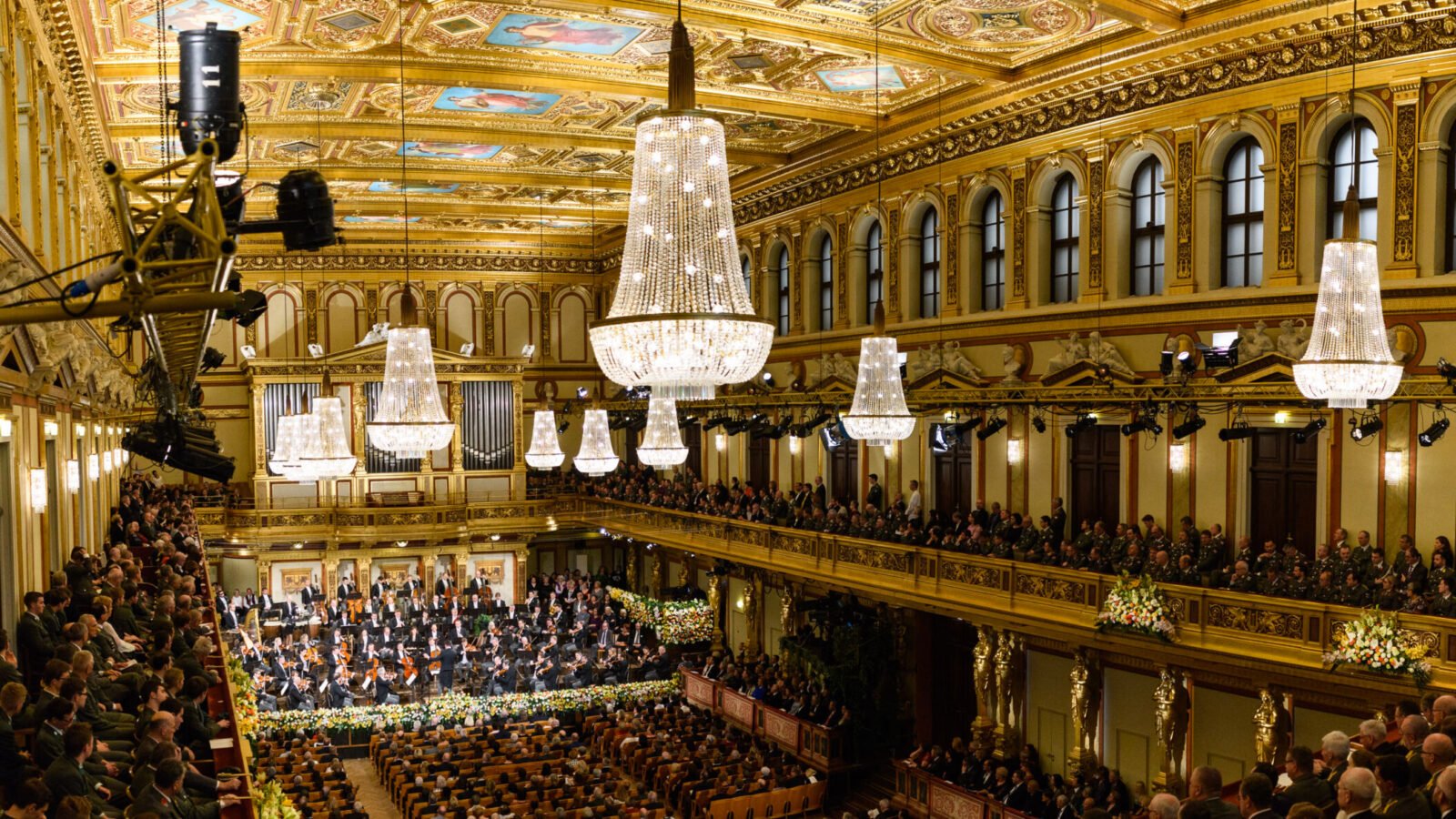
Vienna Philharmonic Orchestra (Photo: Benedikt Dinkhauser)
There may be one city in the world that can be considered the capital of New Year’s celebrations and music, and that is Vienna, Austria. With their time-honored concerts, fireworks, and deep cultural traditions, the Viennese have turned these celebrations into an unsurpassed art form.
Steeped in centuries of musical history, Vienna is a place where past and present seem to co-exist. Mozart, Beethoven, and Brahms are just a few of the many who have gravitated to this remarkable Mecca for the arts (scroll to the bottom of the page to enjoy a playlist of works that evoke Vienna). To this day, performers, composers, and others continue to move here for the cultural life that it offers.
We asked several classical artists to share why they love living in this venerable European city.
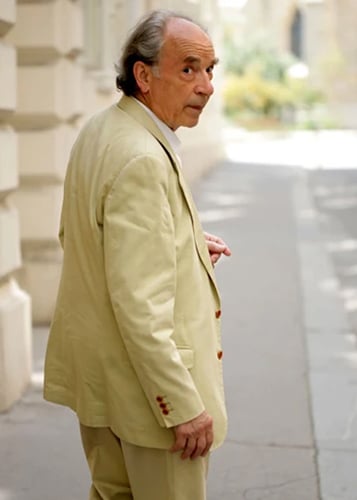
Paul Badura-Skoda at home in Vienna (Photo: Irène Zandel)
Paul Badura-Skoda
With a career spanning seven decades, Paul Badura-Skoda is an internationally celebrated pianist, conductor, chamber musician, composer, and teacher. Still performing into his nineties, he has made hundreds of recordings and performed in the world's greatest concert halls. A specialist in the music of the 18th and 19th centuries, Mr. Badura-Skoda is the only pianist to have recorded the complete Mozart, Beethoven, and Schubert sonatas on modern as well as period pianos.
Vienna is my birthplace. I feel here "at home." Most of the streets and little corners are mine. She is small, comfortable, but she is also tall. Vienna is a cosmopolitan city, the city of many immigrants. And above all, she is the city of Schubert, my brother.
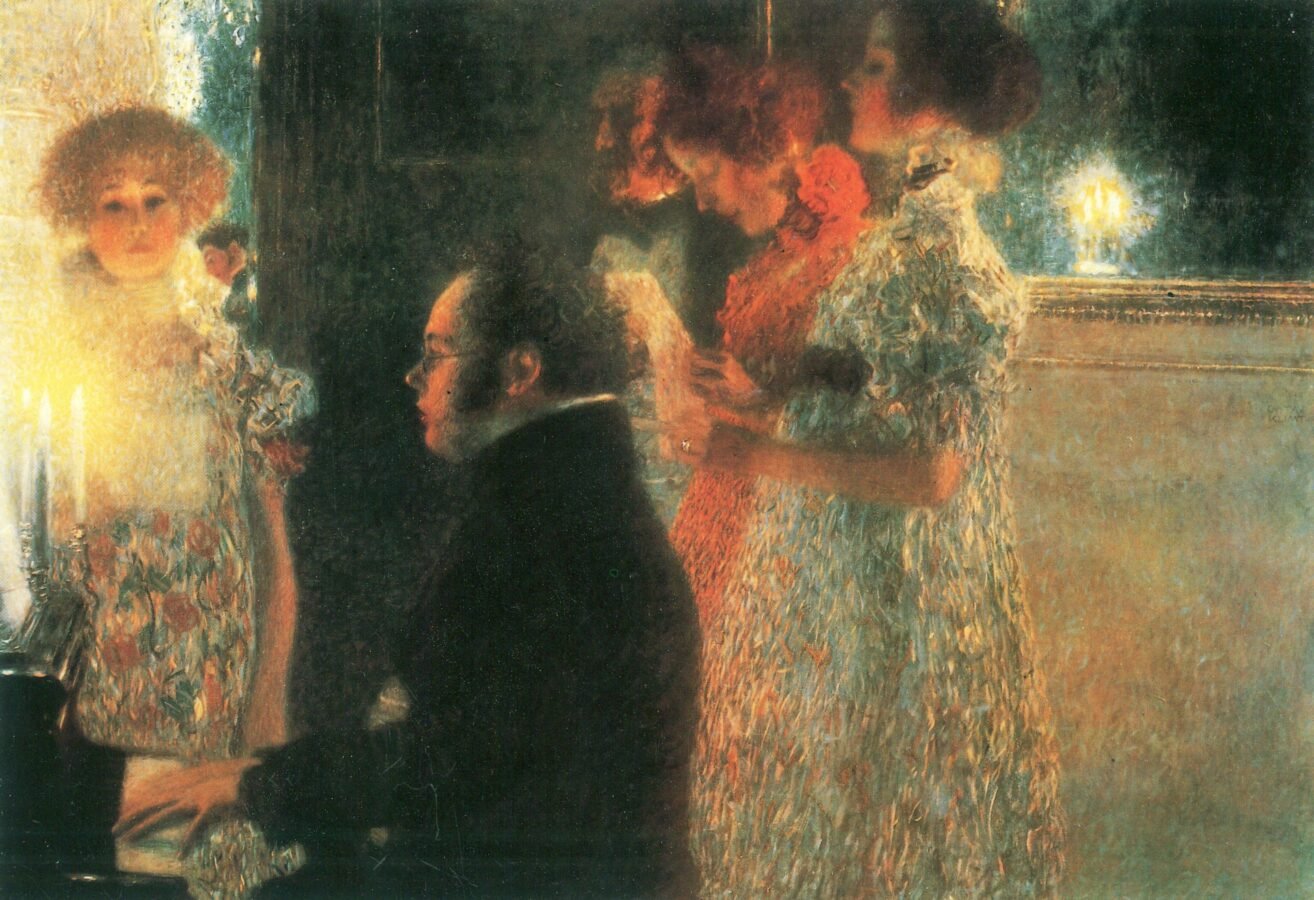
Gustav Klimt's 1899 oil painting, Schubert at the Piano, was destroyed in a fire set by retreating German forces in 1945 at Schloss Immendorf, Austria.
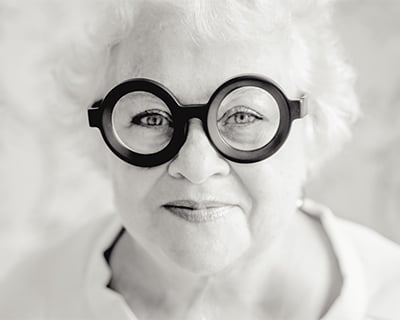
Dora Schwarzberg (Photo: Andrej Grilc Photography)
Dora Schwarzberg
Violinist and eductator Dora Schwarzberg was born in Tashkent, Uzbekistan and left Russia in 1973 to go to Israel. Vienna was meant to be a stop on the way but she was offered a wonderful position and has lived there ever since. In addition to performing, she has dedicated her career to mentoring generations of young musicians and established the Dora Schwarzberg Academy.
Vienna is trying to stay the way it always was when she was a European princess. Traditions are kept. They are more important here than anywhere I have lived before: London, New York, Antwerp, Tel Aviv, Jerusalem. I live well here and after all these years am still charmed from time to time, especially at Christmas. When the city lights up, it is especially beautiful.
[I tell young musicians] the biggest aim is to make your living, because nobody will do it for you. Life is good in Vienna and there are many opportunities, and a big history of music. This can also create the danger of becoming comfortable. Most truly artistic people I know are never totally satisfied, so sometimes you end up choosing what you get. Don’t lose yourself, keep your ideals, and don’t do what you don’t want to do.
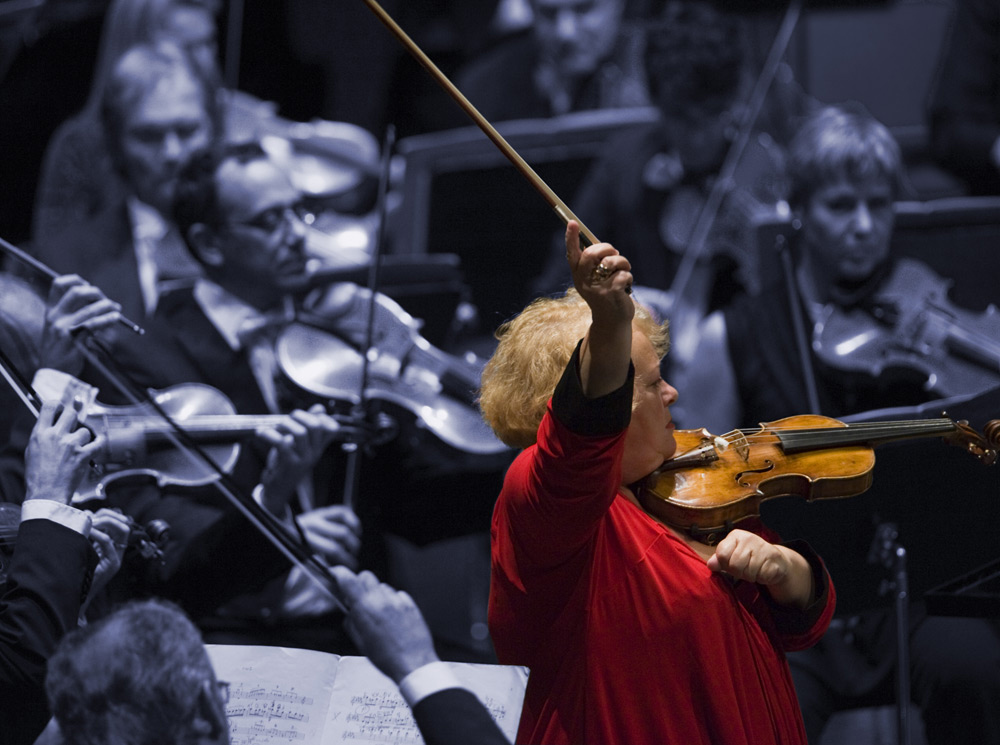
Dora Schwarzberg (Photo: Adriano Heitmann)
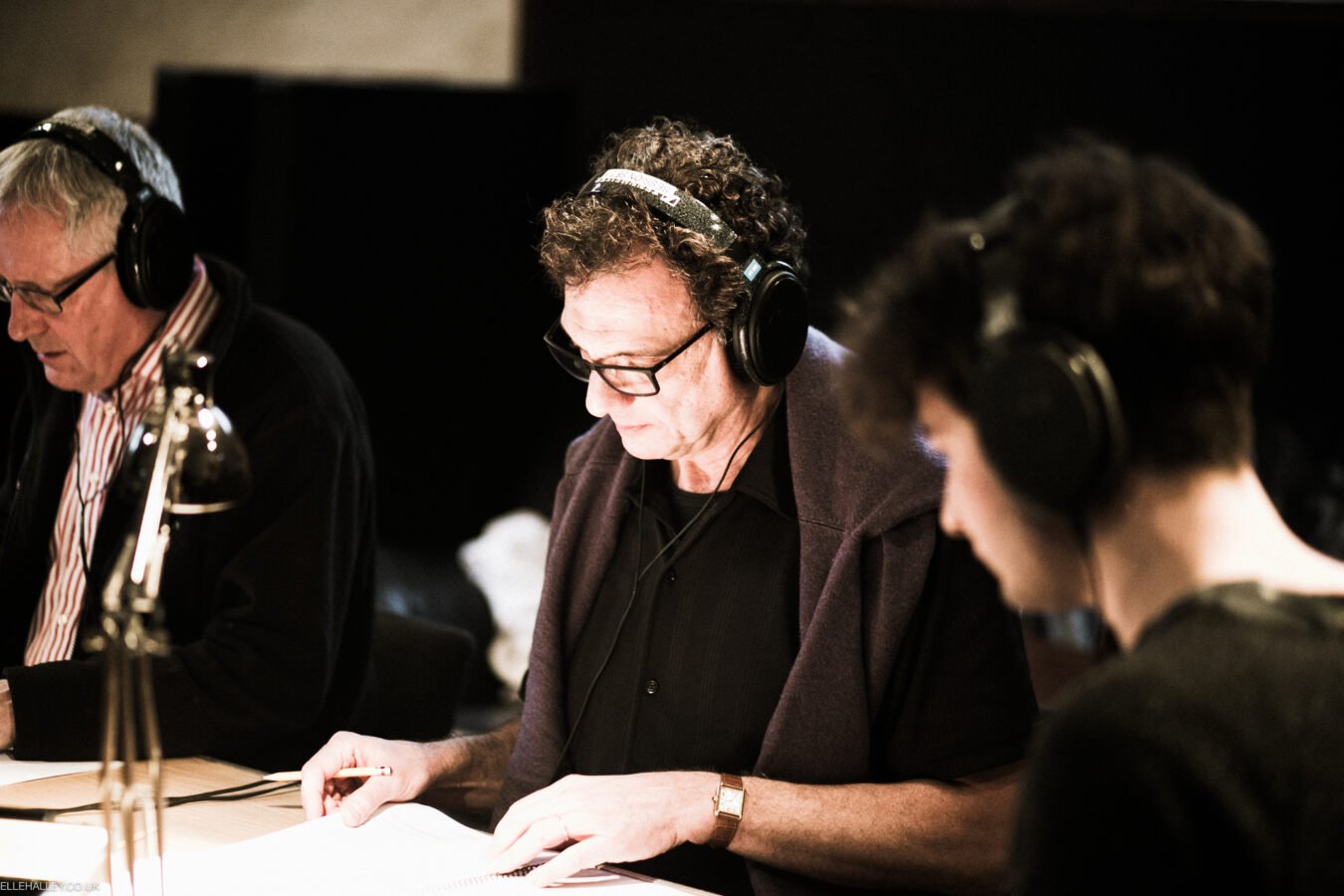
Miguel Kertsman in a recording session (Photo: Elle Halley)
Miguel Kertsman
Composer, keyboardist, arranger, music producer, and educator Miguel Kertsman was born in Recife, Brazil. He studied at the Berklee College of Music in Boston, worked and lived in New York, London, and Chicago, and cherishes the rich cultural life of Vienna where he and his family currently reside.
The very first time I visited Vienna from New York in 1994, I couldn't get over two distinct aspects. At the airport one could smell the appetizing and sweet "Beisl" in the air. And I found myself in a city where one could literally follow the footsteps of so many great musicians and composers, philosophers, and scientists. It was stimulating beyond measure.
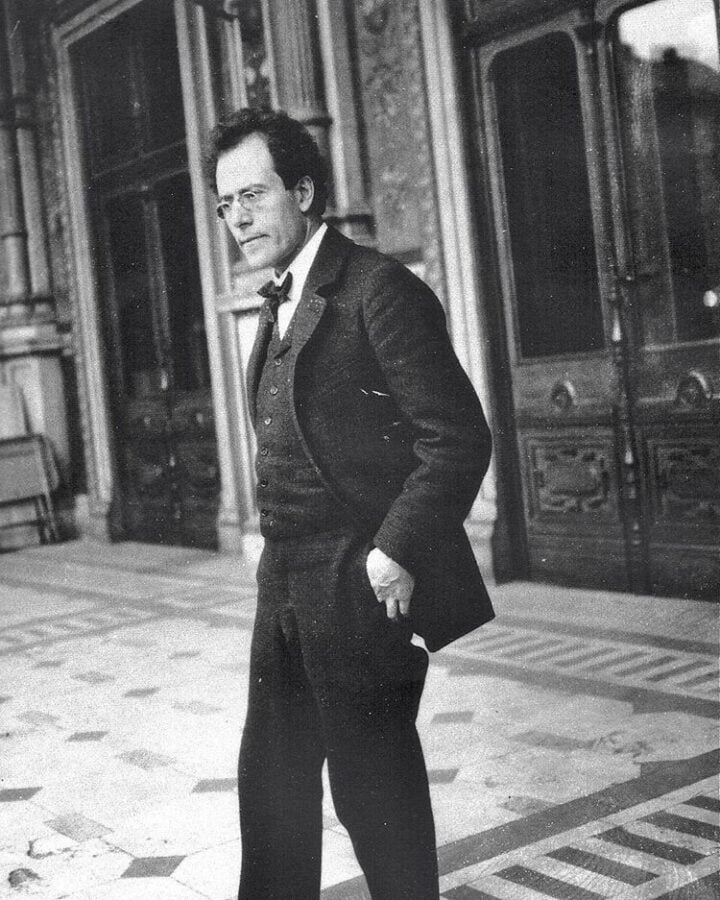
The great Czech composer Gustav Mahler also made Vienna his home. From 1897-1907 he served as director of the Viennese Opera, then and today among the world’s best opera houses.
At that time, I obtained an original edition Mahler score at a music antiquary – imagine that! I had never seen such a place of business. Then I proceeded to a Café where the likes of Mahler, Klimt, Kafka, Kokoshka, Schönberg, Freud, and so many others may have engaged in lively discussions. I ordered myself a Wiener Eiscafè whilst smoking a cigar (which one could still do in those days) without hurry or stress, appreciating the decor. Visiting the several composers' houses was to immerse oneself into the world of great masters such as Mozart, Beethoven, Schubert, and Brahms.
Exciting city life, majestic architectural landmarks, museums, the Vienna woods and the Danube are all within easy and quick reach. Vienna has changed quite a bit in the last 15 years, becoming livelier, more colorful, diverse, and modern. In a sense, it has regained some of that “crossroads” role it had during the Austro-Hungarian Empire, retaining a rich cultural legacy.
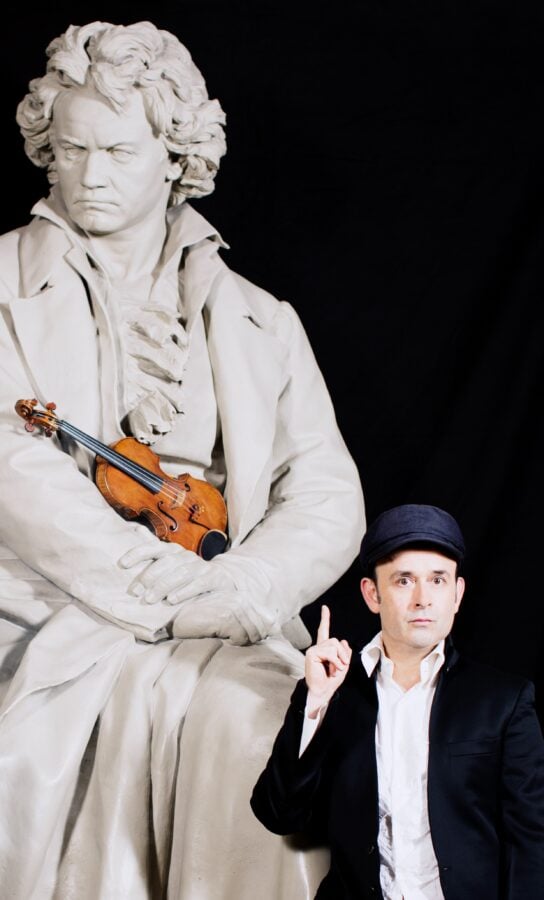
Aleksey Igudesman with a statue of Beethoven in the Wiener Konzerthaus (Photo: Julia Wesely)
Aleksey Igudesman
Aleksey Igudesman, a violinist, composer, conductor, comedian, filmmaker, actor, writer, poet, and entrepreneur, was born in Leningrad, Russia, as he puts it, “at a very young age.” New Year's Eve will find him center stage at the Wiener Konzerthaus (Vienna Concert House), directing the Wiener KammerOrchester (Vienna Chamber Orchestra) along with friends and special guests in a gala performance he calls "Waltz of the World."
Vienna is possibly the capital of classical music, even to this day, but at the same time also lovingly known as “The Big Village” by all of us real and fake Viennese.
It’s a tough one. You can live in Vienna for over 25 years like I have, but still not be qualified as a “real” Viennese. The Viennese can be grumpy, but also lovable in their grumpiness.
Vienna is more and more international and that is indeed a great thing for every city, I believe. Food-wise there are a few gems. Funnily enough, my favorite place is the Japanese Fusion restaurant Shiki. That place embodies Vienna in many ways. It’s a stylish, Michelin-starred Japanese restaurant with Austrian influences. The chef is a wonderful Austrian cook and the owner, my friend Joji Hattori, is a great violinist and conductor.

Aleksey Igudesman presents "Waltz of the World," a New Year's Gala concert, at the Wiener Konzerthaus (Photo: Wiener Konzerthaus/Victoria Coeln)
This wonderful mixture is what makes modern day Vienna special to me. The restaurant is a one-minute walk to the opera, and my apartment happens to be on the next street also. A few more minutes and you are at the Musikverein and the Konzerthaus, legendary places where Brahms, Mahler, Berg, Schönberg and their buddies had world premieres of their works. As do we, today’s newest Viennese school composers and musicians. It’s quaint. It’s stuffy at times. A hell of a lot of fun at others. But always charming in its own bittersweet way. To me, and many wonderful musicians, Vienna is home.
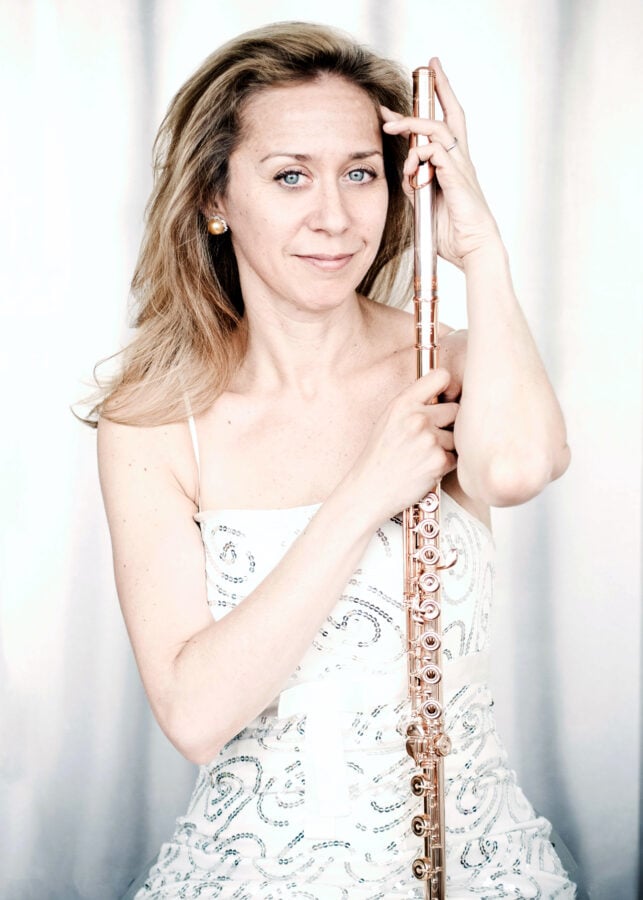
Marina Piccinini (Photo: Marco Borggreve)
Marina Piccinini
Acclaimed flutist Marina Piccinini, and her husband, pianist Andreas Haefliger, lived in New York City until the tragic events of September 11, 2001. They moved to Vienna to be closer to their families — hers in Milan, and his in Vienna. Born in the United States to a Brazilian mother and an Italian father, Marina soon discovered how much she loved the city’s rich cultural life and history:
The Musikverein with its Goldene Saal and original scores by Mahler, Beethoven and Schubert in the archives; the Konzerthaus with its electric programming; the unique, luscious and flexible sound of the Vienna Philharmonic; the Staatsoper and the Theater an der Wien with their diverse array of productions; the fabulous museums, the theater, the furniture of Hoffmann, the Beethoven frieze by Klimt in the Secession, the many golden balls atop the gorgeous buildings, perfectly preserved examples of architecture from the time of Mozart to Adolf Loos. They are all easy to get to. Along the way, it’s also easy to be distracted by a coffee at Demel, champagne at the Imperial Hotel, a finger sandwich, and Pfiff (the world’s tiniest beer) from Trzesniewski.

Marina Piccinini performing the Nielsen Flute Concerto with Jukka-Pekka Saraste and the Vienna Symphony (Photo courtesy Marina Piccinini)
But all this tradition and continuity is as much a part of its fabric now as it has ever been. The waiters at the Café Frauenhuber are probably as mildly unfriendly now as they were to Mozart. The woman who designed my website has her office in the house where Schubert died, across the street from where [the great conductor] Erich Kleiber was born. I can ride my bike on the Donau Canal past the cool and gritty street art and follow the same path Beethoven would take. Here, the stars embedded in the sidewalk celebrate not movie stars but composers.
Mahler is supposed to have said “Should the world come to an end, I will move to Vienna where everything happens fifty years later.” There is definitely something in that! It is a city steeped in tradition and, at times, annoyingly slow to change. But it is also a city of change, and that is another dimension that makes it so magnetic.
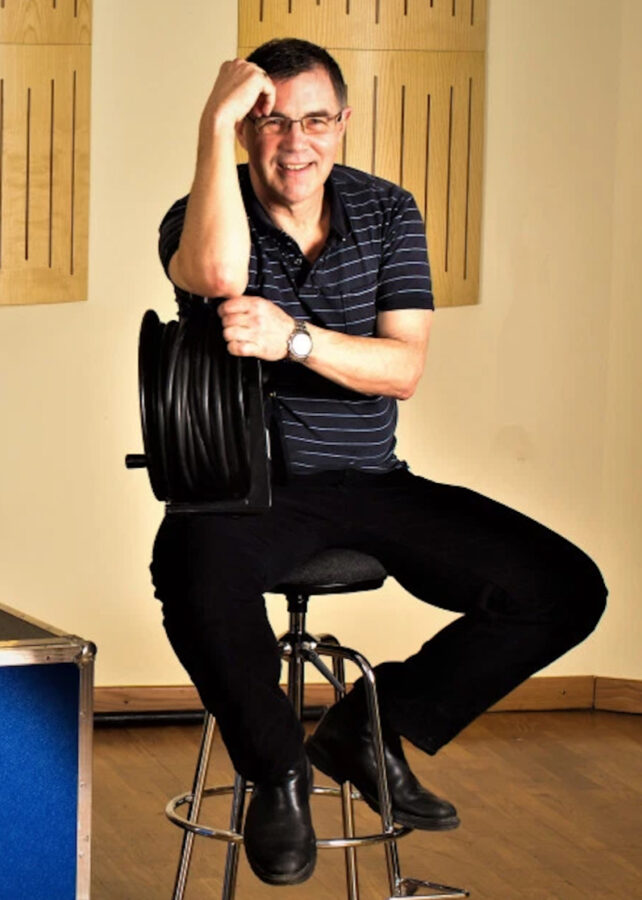
Michael Haas at Tonzauber Studios Vienna (Photo: Georg Burdicek)
Dr. Michael Haas
Producer, historian, and author Michael Haas hails from Charlotte, North Carolina. He lived for many years in the UK and is now based in Vienna. An accomplished exhibition curator, historian, and author of Forbidden Music – the Jewish Composers Banned by the Nazis, he is co-founder and chair of the exil.arte Centre, based at Vienna’s University for Music and Performing Arts.
I spent much of my childhood and youth in Vienna. I studied music here. When I started to work for the international recording labels Decca/London Records and Sony, I was able to travel the world, yet no city seemed as comfortable and as agreeable as Vienna. At first, I thought it was because of fond childhood memories, but after moving here permanently in 2002, I discovered that I was not mis-remembering something; it was simply a fact.
Vienna is geographically small, so no location, theater or concert hall is more than 10 or 15 minutes away on a bike. There are 65,000 tickets for sale every evening for various performances, which means in a city of 1.8 million, there are almost always tickets to be had for anything at relatively short notice; plus, the number of galleries and museums must be in higher proportion to population than any other city.
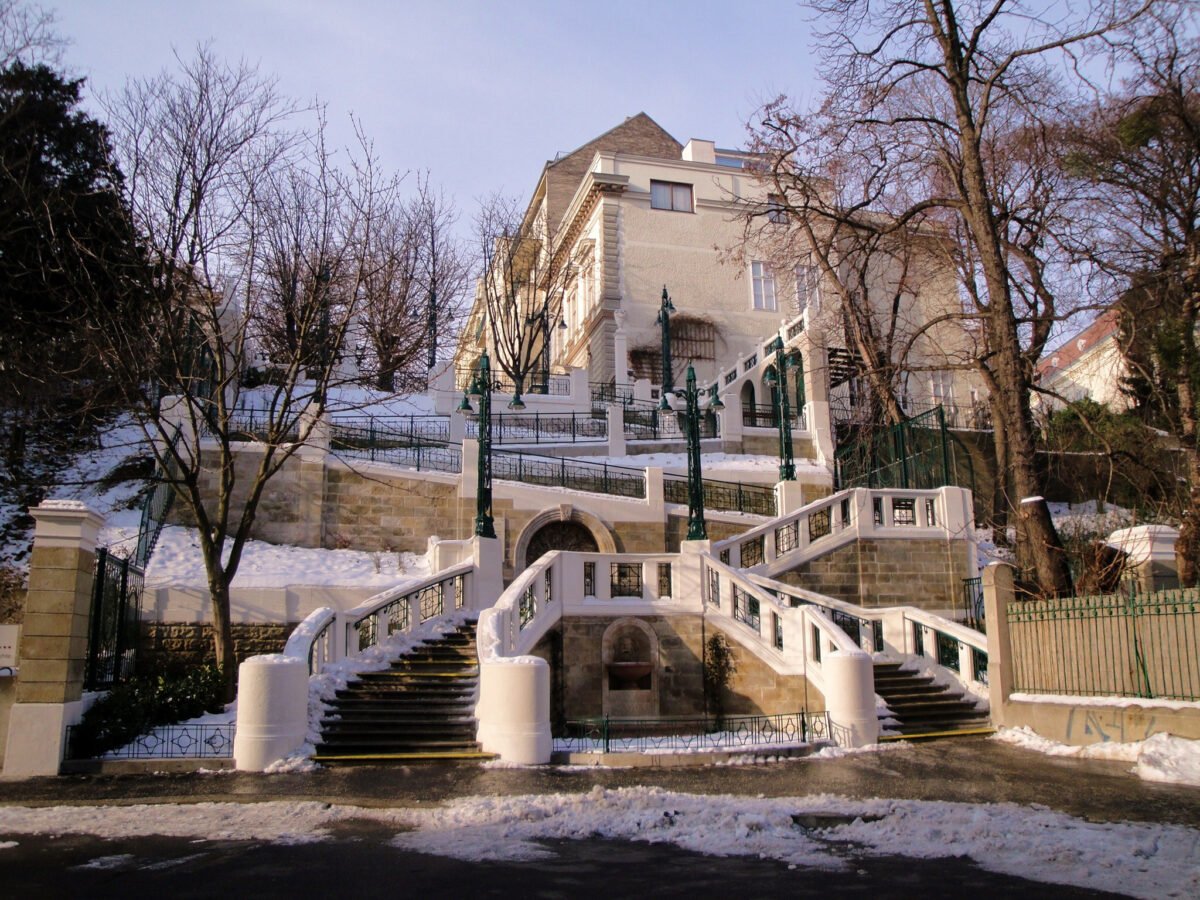
Michael Haas notes that Vienna was the birthplace of 20th century art and music. He lives near the Strudlhofstiege staircase, a perfect example of Jugendstil – the Viennese answer to Art Nouveau. (Photo: Michael Haas)
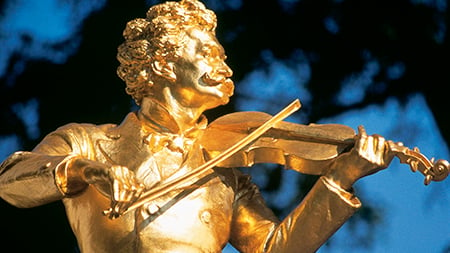
Established in 1862, the Stadtpark is Vienna's first public park. That’s where you’ll find Edmund Hellmer’s 1921 gilded sculpture of the “Waltz King,” Johann Strauss. (Photo: WienTourismus/Willfried Gredler-Oxenbauer)
But most importantly, Vienna was home to the 20th century, a movement that Hitler tried, Canute-like, to stop. He drove its protagonists into exile or had them murdered. For a long time, Vienna showed no sign of acknowledging this crime or even regretting its occurrence. Then suddenly, and not a moment too soon, a generational change took place in Vienna, when this cultural loss suddenly became central to its own story and identity: Freud, Klimt, Mahler, Schoenberg, Berg and others stood together with Mozart, Beethoven, and the “Waltz King” Johann Strauss.
From a musical perspective, acts of cultural restitution began with investment and engagement not matched anywhere. We now have the exil.arte Center for the study and collection of music driven into exile – or worse. In the 18 months the Center has been opened, we have been in receipt of about 15 musical estates from every corner of the world and representing every genre. And still they come.
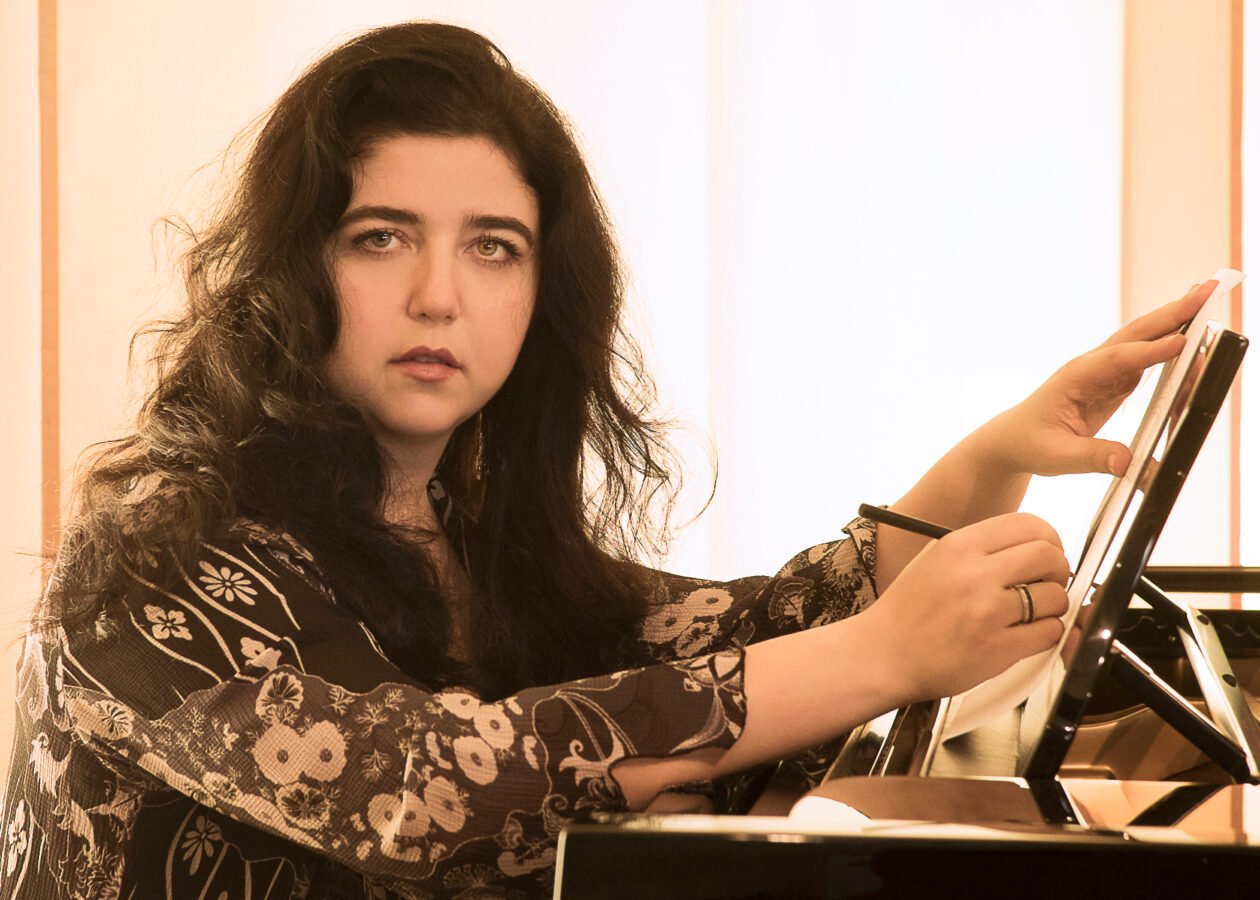
Lera Auerbach (Photo: F Reinhold)
Lera Auerbach
Composer, pianist, and visual artist Lera Auerbach was born in Chelyabinsk, Russia. She emigrated to New York at age 17 to study at the Manhattan School of Music and later at the Juilliard School. Her prolific output expresses the concept of the Gesamtkunstwerk, or “total work of art,” and includes music, paintings, sculpture, and theater. She has lived in the United States and in Germany, and moved to Vienna in 2017.
I first visited Vienna in 2001. I was Composer-in-Residence at Gidon Kremer’s Lockenhaus Music Festival. As I arrived in Vienna, on the way to Lockenhaus, I had a strong and inexplicable déjà vu. I returned to Vienna in 2011 to prepare the world premiere of my opera Gogol, commissioned by the Theater an der Wien. The feeling of a priori recognition returned the moment I arrived at the airport. I felt as if I returned home.
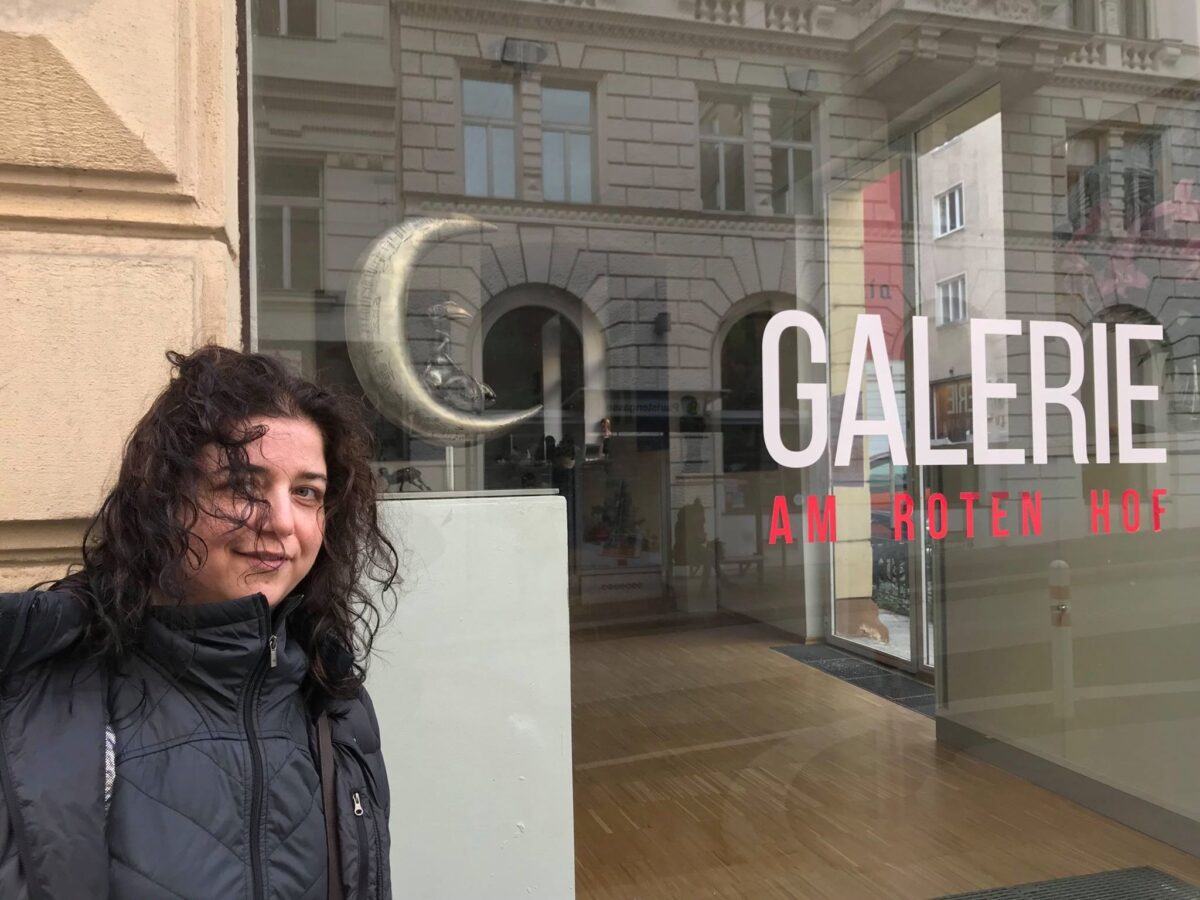
Lera Auerbach exhibited her sculptures at Galerie Am Roten Hof in Vienna (Courtesy of Lera Auerbach)
Last year, I returned to Vienna for an exhibition of my paintings at Galerie am Roten Hof, and the European premiere of my Concerto for Violin and Orchestra at the Musikverein. I was scheduled to stay in Vienna for two weeks, but I did not want to leave, and continued extending my stay until it became clear that finding a flat and making Vienna my European home was inevitable.
I love different sides of Vienna. It is a big small town where everywhere you go you see someone carrying a musical instrument. I love everything about 21st century Vienna. Its street art reveals its wilder younger side, while the old-fashioned horse-carriages transport you into the past. Vienna can be lavish and elegant, yet it is also down to Earth. It is rough and polished, traditional and edgy. Vienna seems to exist in its own time-loop. It is self-aware of its contradictions and embraces them with typical Viennese charm.
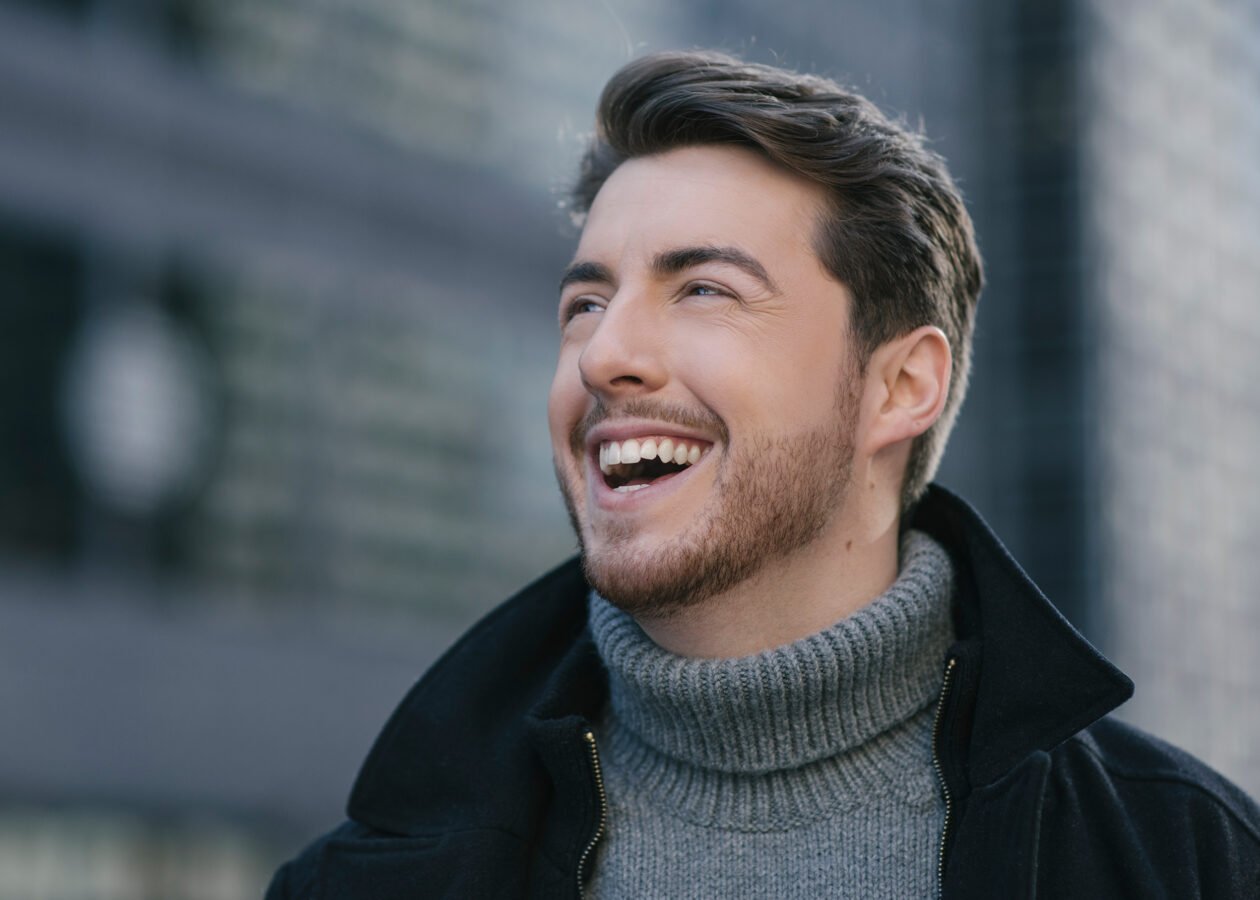
Josh Lovell (Photo: Simon Pauly)
Josh Lovell
Originally from Victoria, British Columbia, tenor Josh Lovell is in his final year as a member of the Patrick G. and Shirley W. Ryan Opera Center at Lyric Opera of Chicago. Like so many artists who have relocated to Vienna in order to make a name for themselves in their craft, Josh will be moving there in 2019 to join the ensemble at the prestigious Wiener Staatsoper.
When I was told that I was being invited to join the ensemble at the Wiener Staatsoper, I was over the moon. That opera house is highly regarded as one of the most important opera houses in the world, and I cannot wait to begin working there, being a part of the productions, and learning all that I can. Vienna has historically been and continues to be a magnet, especially for the arts!
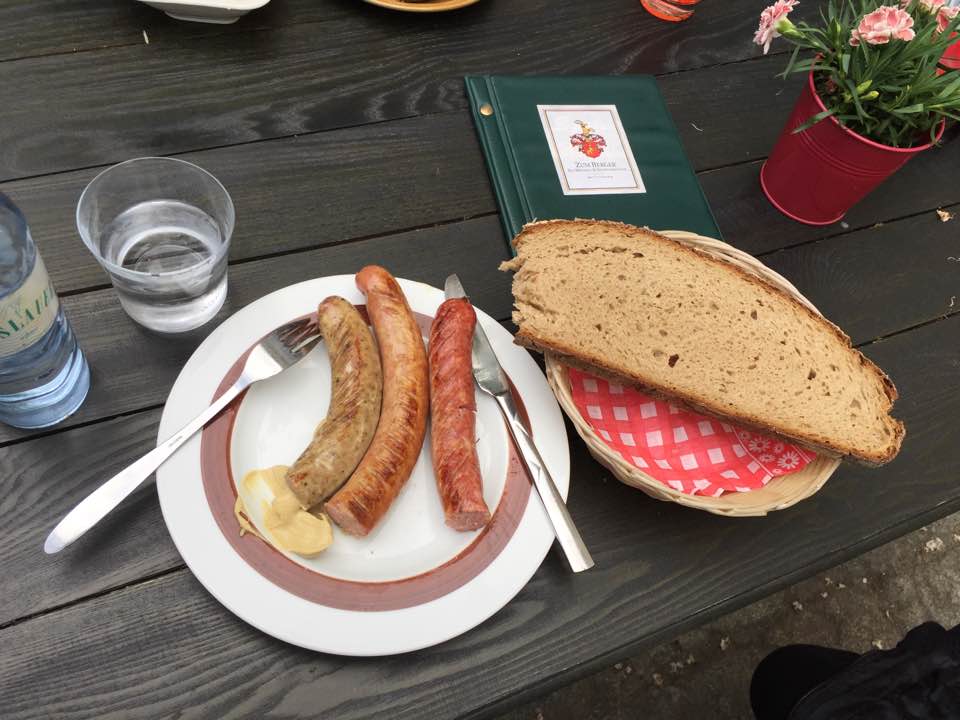
Josh Lovell looks forward to a life that includes opera and Bratwurst when he moves to Vienna. (Photo: Josh Lovell)
There are so many reasons that I am thrilled to soon live there but the three most exciting (in no particular order) are the food, the opera, and the culture! I love Bratwurst, but most of all I can't wait to enjoy all the Viennese meats, beer, and desserts again. I love the arts and especially opera, and I admire how opera is so ingrained in the Viennese culture. Only in Vienna is there an opera toilet! Lastly, I am really excited to live in a new country. Being a member of the Ryan Opera Center has prepared me for this new journey and I am ready to take in all that Vienna, and Austria, has to offer.
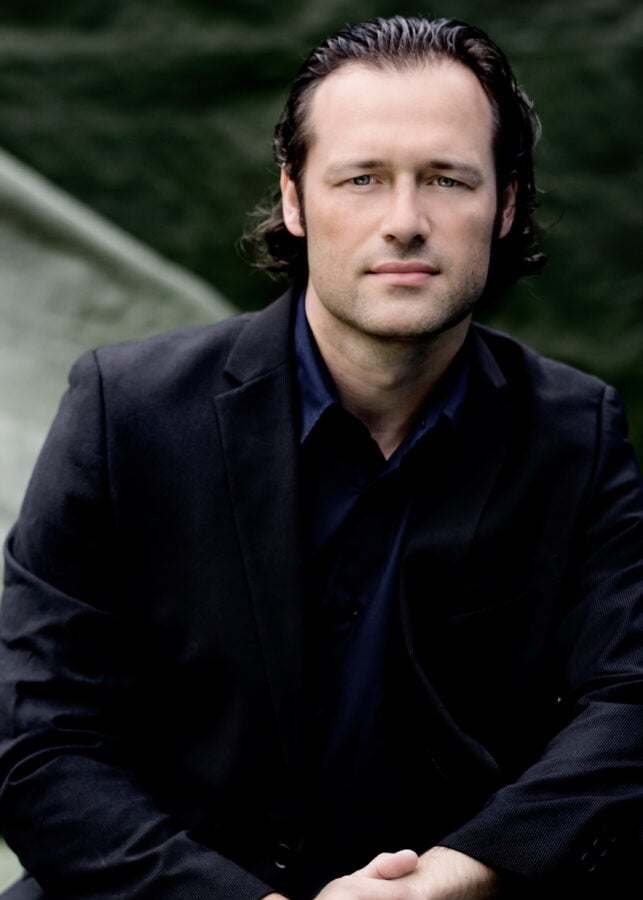
Conductor Sascha Goetzel (Photo: Harald Hoffman)
Sascha Goetzel
Vienna-born conductor Sascha Goetzel lives just behind the Karlskirche, a landmark Baroque church, and a short walk from the Musikverein, the Wiener Staatsoper, and the Konzerthaus. His father is a former member of the Vienna Philharmonic, and Sascha grew up in those musical houses. He is currently music director of the Borusan Istanbul Philharmonic Orchestra and a guest conductor all over the world.
Since New Year’s Eve 1900, the Johann Strauss II operetta Die Fledermaus has appeared on the Wiener Staatsoper’s program at the end of year. Once again, Sascha Goetzel will lead a number of sold-out performances.
Having the opportunity, as a musician, to live in this city is to live in the spirit of all those great composers, philosophers, intellectuals, and artists who have left their footprints in the streets of Vienna. And they, too, during their time, were part of the same cycle of learning, growing, evolving, and innovating.
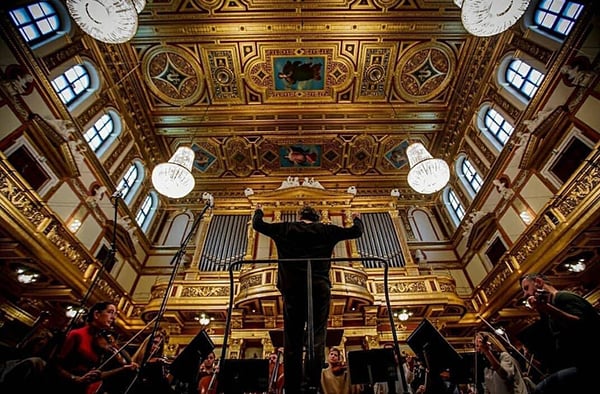
Sascha Goetzel on the podium in the Golden Hall of the Wiener Musikverein (Courtesy Sascha Goetzel)
Every year since I was born, the New Year’s Concert played by the Vienna Philharmonic, and the performances of Fledermaus at the Wiener Staatsoper, marked the end of one musical cycle and the beginning of a new one in its most sparkling, light, and joyful form. When I first conducted Fledermaus at the Wiener Staatsoper two years ago, tears of joy and gratefulness came into my eyes. Here I was, actively becoming a part of that cycle which has been in this city for more than 250 years.
Music connects all people from all around the world, and in Vienna this spirit lives on through the music making every day.
Enjoy this playlist of music performed and composed by artists who have made Vienna their home!
